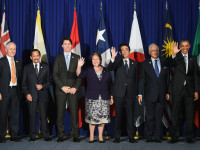Last week, Canadian Heritage posted the Ministerial briefing book that officials used to bring new minister Mélanie Joly up-to-speed on the issues in her portfolio. The proactive release is a great step toward further transparency. While the mandate letter from the Prime Minister provides insight into government policy priorities, the briefing book sheds light on what department officials view as priorities and how they frame key issues.
The copyright presentation is particularly revealing since it presents Minister Joly with a version of Canadian copyright lacking in balance in which “exceptions are always subject to certain conditions” but references to similar limitations on rights themselves are hard to find. Department officials present a frightening vision of emerging copyright issues, pointing to mandated Internet provider blocking, targeting copyright infringement that occurs on virtual private networks, and “hybrid” legal/illegal services that may be a reference to Canadians accessing U.S. Netflix. The suggestion that Canadian Heritage officials have identified site blocking or legal prohibitions on VPN or U.S. Netflix usage as emerging copyright issues should set off alarm bells well in advance of the 2017 copyright reform process.












